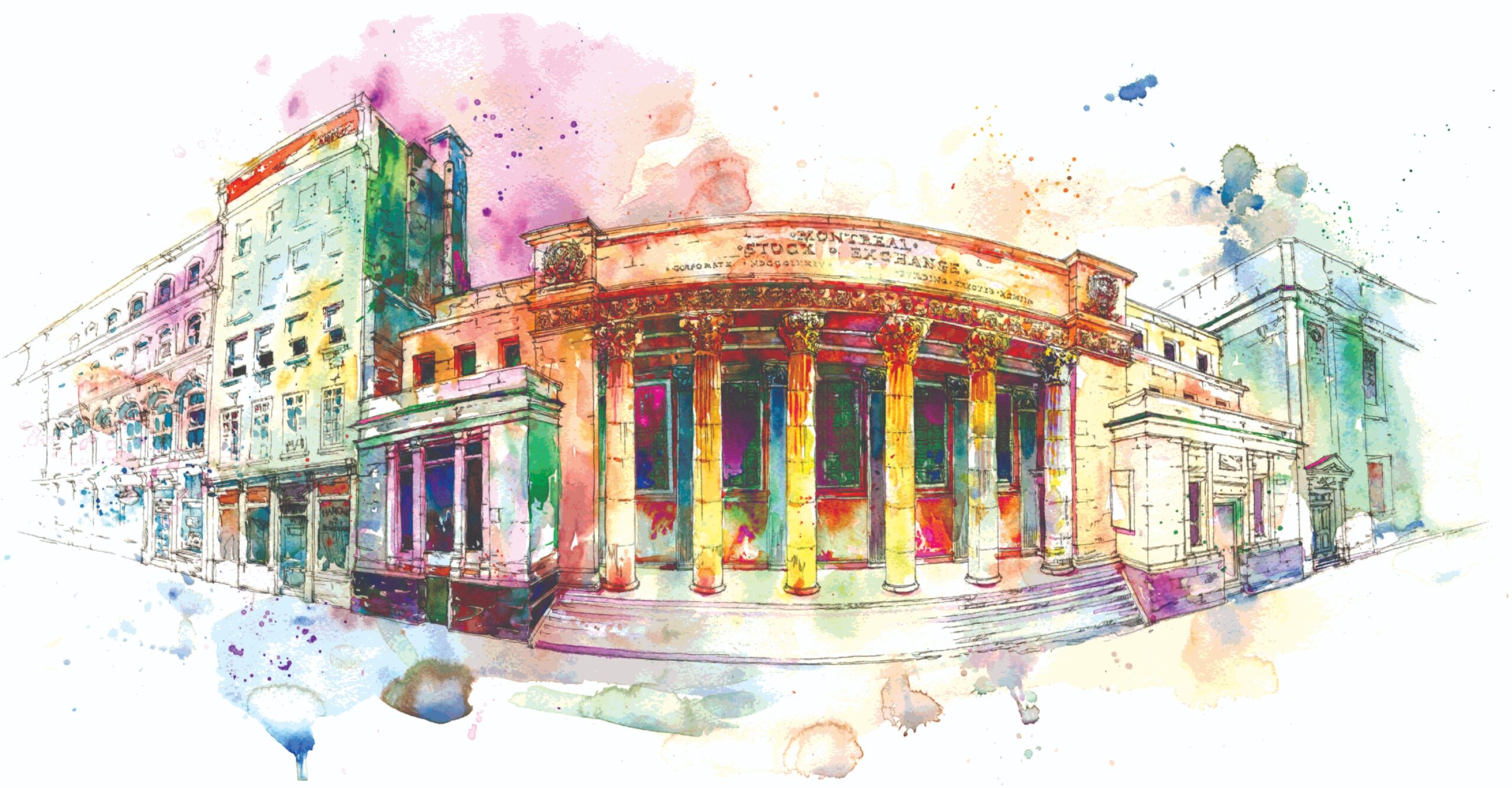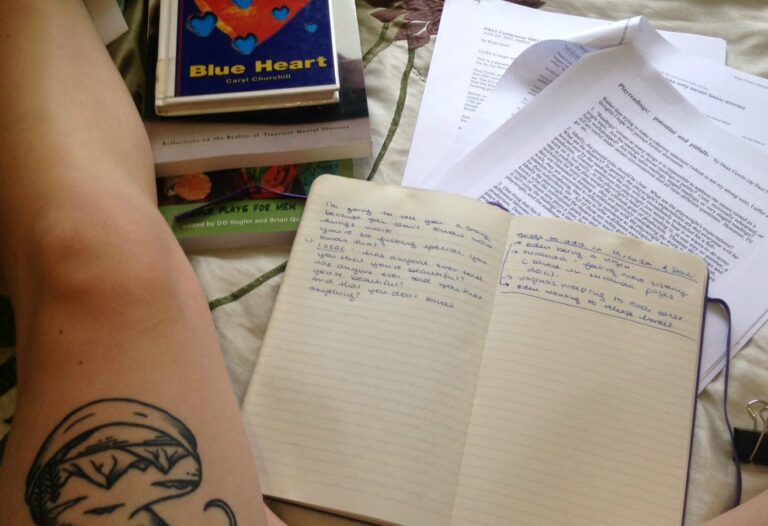Centaur Theatre Celebrates Fifty Years, and Beyond

I moved to Montreal when I was 18 years old and it was just as romantic as I imagined it would be. Fresh from a woodsy Vancouver suburb, I was overcome by my love for the city—a vibrant, diverse place where something big was always going on. Montreal incubates artists. How many times have you been to a party and heard the classic “maybe I should move to Montreal”? I’ll say it now, you probably should, but please make sure you have adequate winter wear.
I smoked clove cigarettes and scribbled frantically in notebooks, watched live circus in the park, and bummed around arts parties. I was dedicated to (what seemed like) the creative process, but here’s the thing—I hated theatre school. I hated being told what to do and how to create. As a writer, I also hated being boxed into theatrical styles that had to “make sense” or “follow a linear plot arc”. For me, writing came from deep urges that made no sense, and to add sense to that was to cut off dramatic limbs, to trim it down to something palatable. After a couple of terrible workshops, it became clear to me that I needed to seek training elsewhere.
Despite being a multilingual hub for international creativity, Montreal has very few major anglophone theatre institutions, so the ones they have are heavy hitters. I was fortunate to train with Black Theatre Workshop as part of the Artist Mentorship Program and at Playwrights’ Workshop Montreal as part of the Young Creators Unit. But where do larger institutions come into the picture with artists and their development?

Centaur port 11×14 by Danielle Demers
Down a cobblestone road in the heart of Montreal’s Old Port, the Centaur Theatre has been operating for fifty years. Founded in 1969 by Maurice Podbrey and Herb Auerbach, the Centaur has a vibrant legacy of serving the anglophone community of Montreal. They have two refurbished theatres that host a full season of plays, as well as the Wildside Festival (a curated winter festival of independent productions), Urban Tales (an annual holiday story-telling night), and the Saturday Morning Children’s Series. Montreal artists are a huge part of the Centaur’s legacy; artistic director Eda Holmes, who began her position at the Centaur in 2017, hopes to strengthen that bond even further as she looks to the future.
I spoke with Holmes on the phone from Montreal, where her production of The Children by Lucy Kirkwood (a co-production with Canadian Stage) was loading in to the theatre. Holmes’ dream for the Centaur is for it to be a crossroads for all disciplines and languages. “We need to open up our mandate and say we are an institution that is providing development for art in the city,” Holmes says. “That creates an offering of place for the creative voice, which can mean all kinds of things.”
That would require a shift in perspective for the fifty-year-old Centaur, which maintains a busy season schedule and rents out to smaller companies as a venue. “It’s not enough for [an institution] to just be for an audience. It made sense that that is what it was for to begin with,” Holmes says, “when they started in 1969, there were a lot of English people here, and there wasn’t a lot of English theatre.”
A focal point for Holmes is the development of the Montreal anglophone voice. When asked about the difference between the Montreal voice, and that of anglophone artists from across the country, Holmes elaborated: “It’s the comfort with abstraction. Anglophone writers from the rest of the country are so informed by the British and American tradition, it’s much more linear and narrative. Every writer I’ve come across here is much more dream-like, non-linear and fluid as an idea. That’s something that I’m really interested in and excited by the potential of that and what that can mean going forward.”
Going forward there is some exciting work in development at the Centaur, and I spoke with two Montreal-born artists who are continuing their collaborations with the Centaur into the future.

Successions (with Gita Miller, Carlo Mestroni, Davide Chiazzese, and Tara Nicodemo) photo by Andrée Lanthier
Michaela Di Cesare is a multi-award winning playwright and performer based in Montreal. Her show, Successions, which charts the conflict between two Italian-Canadian brothers trying to sell their family home following the death of their parents, won the 2018 Montreal English Theatre Award for Best New Text. In 2016, her show In Search of Mrs. Pirandello, was presented at the Wildside Festival—Centaur’s winter smorgasbord of indie theatre that is aptly dubbed the hottest days of winter—and she was featured in this year’s Urban Tales.
The Centaur has a long history with the Italian community, and Di Cesare felt its influence. “My one goal, growing up Italian-Canadian in Montreal, and seeing work going up at the Centaur, was to have a show there,” Di Cesare says. “To me the Centaur was the be all and end all for a long time. Theatre didn’t exist beyond the Centaur.”
But much of the Italian programming fell into the same tropes that Di Cesare struggled with as an emerging female playwright: “There was a very, very long time of having only a male perspective on the Italian community, and at times a problematic one, especially in regards to the depiction of women.” The genre was also something Di Cesare had to contend with. “In the past the Italian play had to be a big bubbly comedy and because I just so happened to be a second generation Italian Canadian…it meant that my work had to fall into that.”
“There was interesting work that went up, there was some experimental work, there were some artists who were allowed to push boundaries but then I think that’s where I came up against a wall,” Di Cesare says. “People couldn’t divorce themselves from the container of what the Italian play was. I think that’s something that Eda is willing to address, and is giving me a platform to create. I want to see work that challenges us as a community. My perspective can be seen as critical, but it’s lovingly critical because I think we can be better.”
Upcoming with the Centaur, Di Cesare will be developing a piece about Michelina Di Cesare, a brigand and robber (with a name almost identical to the playwrights’), who was captured by the Italian army following unification of Italy.

Michaela Di Cesare (left) and Alison Darcy (right) by Sabrina Reeves
I also had the opportunity to speak with Alison Darcy, a Montreal-based actor and director, and the co-artistic director of Scapegoat Carnivale. The daughter of Centaur founders Elsa Bolam and Maurice Podbrey, Darcy’s involvement with the Centaur has spanned her whole life.
“I often say that I kind of grew up in the costume room because I spent all my time in there trying on costumes,” Darcy said. Despite her love for the Centaur she felt the need to create her own identity as an artist, “As I grew older, and in the later years of my father’s time working there, I thought that I needed to separate myself from the Centaur, and create my own thing.”
Her own thing was Scapegoat Carnivale, a company known for its highly theatrical adaptations of classics and new works (many of which are penned by Darcy’s longtime collaborator and co-artistic director Joseph Shragge). Her work with Scapegoat, and her work as an actor and director brought her right back to the Centaur. “One of my favourite pieces that we’ve done was Medea which we did at the Centaur,” Darcy says. “The ability to take over that space and the generous funding that they give you to do that work, it’s critical to the advancement of local art. They were fundamental to the building of our company through that generosity.”
Most recently, Darcy directed a staged reading of Balconville by David Fennario as a part of the Centaur’s Legacy series. Balconville was one of the first bilingual plays in Canada, and brought national attention to the Centaur. The legacy reading featured Fennario’s son, Tom, on stage directions.
Scapegoat Carnivale will continue their relationship with the Centaur in a remount their bloody classic Sapientia, an object puppetry adaptation of Hrosvitha of Gandersheim’s 10th century play. The show (which I had the good fortune to catch at Mainline Theatre this summer) won the 2018 META for Outstanding Independent production, and will be a part of the 2019 Wildside Festival.

Sapientia by Andrew Patrick Boivin
The future is bright at the Centaur. With fifty years behind them, Holmes’ is a driving force towards a future full of thriving Montreal artists. “The thing I really learned at Shaw from Jackie Maxwell, is that you always have to address every situation of the institution from an art perspective,” Holmes says. “You have to put the art conversation in front of everything. So that’s what driving everything; otherwise you lose the context of what you have to do.”
Holmes hopes that creators grow with Centaur, and become part of the community as contributors and leaders, “I love the idea that that’s what we can do, that we can be the means by which you become an artist.”
It’s been five years since I first arrived in Montreal as a baby artist. This past January, I had the pleasure of seeing my play Tragic Queens staged by Cabal Theatre at the Centaur as part of the Wildside Festival. It was absolutely wretched outside on opening night, a veritable Montreal winter but so many people showed up that I barely got a seat. As the lights went down, I let myself feel proud, and happy to have found myself here, of all places.
The Children, a co-production between Canadian Stage and Centaur Theatre, runs until November 25, 2018. For tickets and more info, click here










Comments